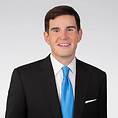Federal Appeals Court Upholds FEC Debate Regulation: 15% Polling Threshold is Lawful
Election Law News previously reported a federal district court’s decision upholding the Federal Election Commission’s (FEC) debate regulation and specifically the Commission on Presidential Debates’ (CPD) use of a 15% polling threshold for candidates to qualify for debates. In June, the U.S. Court of Appeals for the District of Columbia affirmed the district court’s opinion.
The plaintiffs – Level the Playing Field (a nonprofit), the Green Party, and the Libertarian Party – sought to force third-party candidates into the presidential debates by filing enforcement complaints against the CPD and by petitioning the FEC to initiate a new rulemaking to amend its regulation on neutral debate staging. They argued that the CPD intentionally and unfairly excluded third-party candidates by setting an unrealistic 15% polling threshold. The FEC dismissed the enforcement complaints, finding that the 15% polling threshold was a neutral standard, and declined to open a new rulemaking or revise its debate regulation to prohibit polling thresholds.
The plaintiffs sued the FEC arguing that the decision not to initiate a rulemaking, as well as dismissal of the complaints, were arbitrary, capricious, and contrary to the FEC’s debate regulation. They argued that the use of a 15% polling threshold systematically discriminates against third-party candidates and turns debates into unfair corporate contributions to the major party candidates.
The Court of Appeals applied a “highly deferential” standard to the Commission’s decision to dismiss the enforcement complaints and its decision declining to undertake a rulemaking. “Judicial review of decisions by the Federal Election Commission is highly deferential,” the Court observed.
The Court walked through the Commission’s point-by-point consideration of the plaintiffs’ evidence and concluded that “far from ignoring plaintiffs’ evidence, the Commission thoughtfully evaluated the record. The Commission offered detailed explanations in support of its view that plaintiffs failed to show impermissible bias against independent candidates or in favor of candidates from the two major political parties. And though plaintiffs may disagree with these explanations, they have failed to show that the Commission’s decision making was arbitrary or unreasonable.”
As to the Commission’s decision against opening a new rulemaking, the Court again set forth a high standard. “Our review of a rulemaking denial is extremely limited and highly deferential.” Under that standard, the Court rejected the plaintiffs’ demand that the FEC revise its regulation.
The challenge to the CPD’s participation criteria and neutrality focused on a corporate-funded nonprofit debate sponsor. But the FEC’s debate regulation also purports to regulate press-sponsored debates too. As detailed by Commissioner Lee Goodman, presidential debates have a rich regulatory history that casts doubt upon the authority of the FEC to restrict press-sponsored debates in the same way it regulates debates sponsored by corporations or nonprofit organizations. In 1980, Ronald Reagan’s famous pre-debate statement “I’m paying for this microphone Mr. Green” in a New Hampshire high school gym arose from the FEC’s threatened enforcement action against the Nashua Telegraph. In 2015, Fox News exercised a newsroom editorial right to expand the number of candidates participating in an undercard debate, which became the subject of enforcement interest by the FEC’s general counsel and several Commissioners.
In light of the federal Appeals Court’s decision in this case, however, the regulatory rules appear to be well-marked for the 2020 general election. Wiley attorneys have advised debate sponsors and are available to advise would-be sponsors on compliance with the FEC’s rules.


